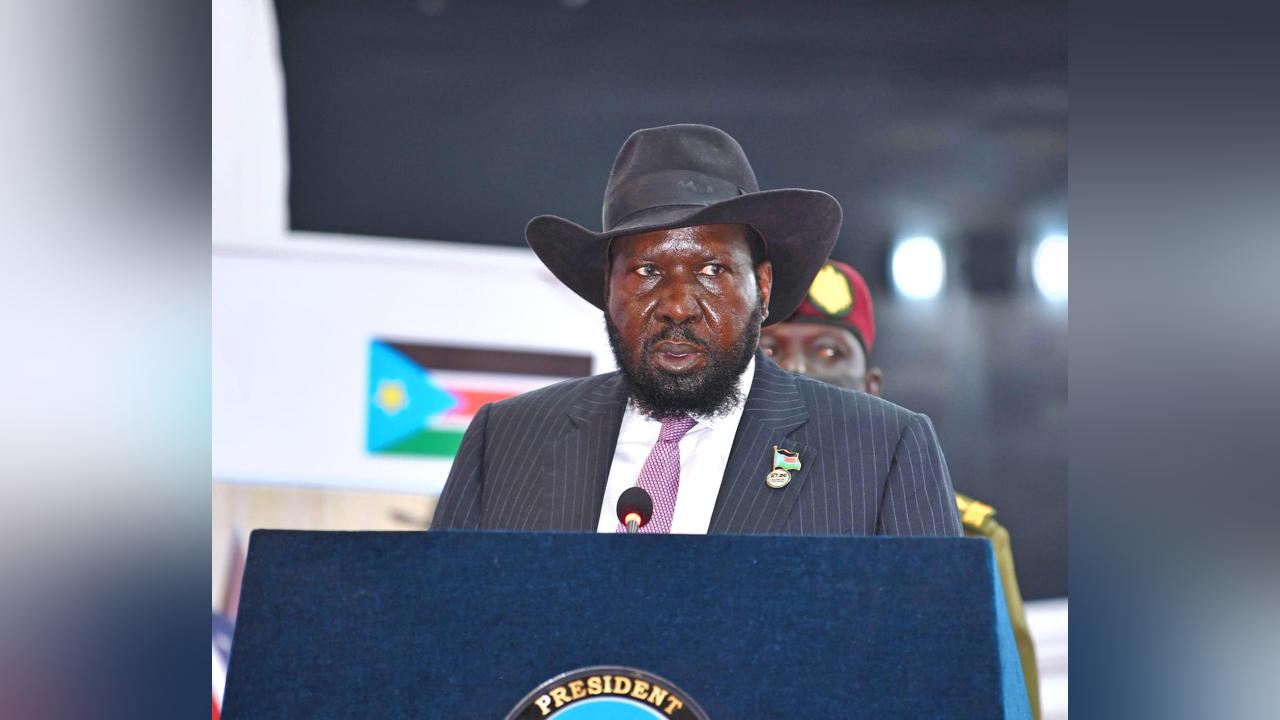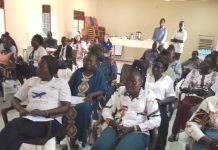Africa-Press – South-Sudan. President Salva Kiir once again affirmed his support for the establishment of the Hybrid Court with a resounding assurance that his administration will not backtrack on the initiative expected to try perpetrators of violence.
Kiir made this assurance during the opening of a three-day conference on the Transitional Justice Mechanism in Juba yesterday.
“We are not shying away from the establishment of a hybrid court for South Sudan, which is part of Chapter Five of the agreement on transitional justice and accountability,” Kiir said.
He said the government remains prepared, waiting for the right time for the formation of the court.
“When the time comes for the enactment of the bill for the hybrid court for South Sudan, the Ministry of Justice and Constitutional Affairs, which is charged with the responsibility to trigger the implementation of these mechanisms in collaboration with the African Union as stipulated in the agreement, will update us accordingly,” he stated.
President Kiir said that the conference focused on truth and reconciliation, calling on all government officials to use it productively to meet its target.
“You will notice that these conferences mainly focused on the commission of truth and reconciliation, healing, compensation, and reparation authority,” he said.
“We hope to benefit from your (experts) experiences and acquire knowledge that will be used to enrich the draft bill already developed by the Ministry of Justice and Constitutional Affairs.”
He noted that the conference on transitional justice and accountability in Chapter remains a cornerstone for everlasting peace in South Sudan.
“I consider this a very important chapter because it gives people the opportunity to see the truth, reconcile, and heal the wound of being victims on the basis of the truth,” he said.
He highlighted that the Hybrid Court would create room for South Sudanese to forgive each other as well as for the victims of conflict to be compensated.
“Those who are found guilty will have the opportunity to apologise and ask for forgiveness; the victims will also find the heart to forgive and the qualifications for compensation and reparation,” he said.
Kiir also reiterated his commitment to maintain and never accept the country’s return to violence.
“As I have said several times, I will never take South Sudan and its people to war again,” Kiir promised.
Election plans
The president underpinned the role of the Transitional Justice Mechanism in preparation for the election.
“In order for us to consolidate peace and be able to conduct a creditable, free, and fair election in our country, we must enact the laws for the establishment of these mechanisms,” he said.
“We want to establish the truth as the basis for reconciliation and healing after the violence and destruction imposed upon our people and country by the two unjustified internal conflicts,” he added.
Speaking at the same event, First Vice President Dr. Riek Machar echoed the president’s sentiment, noting that transitional justice remains a priority for everlasting peace in the country.
“This is a very important occasion (the conference on the Transitional Justice Mechanism) because peace without justice always does not last,” Machar said.
He added that the conference would be the final one for the “experts so that we could reach a good conclusion.”
Chapter (V) of the peace agreement talks about transitional justice, accountability, reconciliation, and healing. There is a need for the formation of a hybrid court for South Sudan.
The peace agreement states that the “Hybrid Court for South Sudan (HCSS) shall be established by the African Union Commission to investigate and, where necessary, prosecute individuals bearing responsibility for violations of international law and/or applicable South Sudanese law committed from December 15th, 2013 through the end of the Transitional Period.”
According to 5.3.2.1 of the agreement, the “HCSS shall have jurisdiction with respect to the following crimes: genocide, crimes against humanity, war crimes, and other serious crimes under international law and relevant laws of the Republic of South Sudan, including gender-based crimes and sexual violence.”
Source: The City Review South Sudan
For More News And Analysis About South-Sudan Follow Africa-Press






